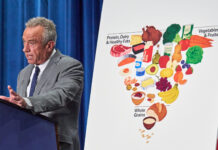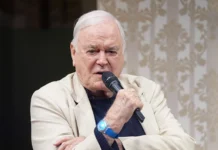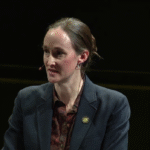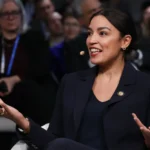
When Vice President Kamala Harris said that inflation isn’t a “partisan issue,” it struck a chord, didn’t it? After all, this is the same inflation that has hit every household across the country – but it didn’t exactly come out of nowhere.
A significant piece of the blame falls on one of the first major bills pushed by the Biden administration: the American Rescue Plan. This $1.9 trillion spending bonanza, approved without a single Republican vote, passed the Senate thanks to a tie-breaking vote from Harris herself. That vote kicked off one of the most rapid inflationary spirals seen in decades.
After the bill’s passage, the effects on the economy weren’t slow in coming. Prices across the board started to spike, and within just a month, inflation jumped from 2.6% to 4.2%. By the following year, inflation rates had surged to well over 8% monthly, hitting a peak of 9.1% in June 2022.
For millions of Americans, this translated into noticeably higher prices on essentials like food, gas, and housing. Despite the administration’s attempts to dismiss or downplay the root cause, one thing became clear: the American Rescue Plan had poured fuel on the inflation fire.
And now, when asked about what she would do to tackle inflation with a divided Congress, Harris assured CBS News’ Norah O’Donnell that inflation isn’t a partisan issue. The Vice President said that “Democrats, Republicans, independents” are all facing these challenges. Sure, she’s right about that, but she left out the role her party’s policies played in creating these “non-partisan” issues. Harris is now calling for “working across the aisle” to solve the problem – yet the bipartisan voices questioning the runaway spending were ignored from day one.
Let’s break down the logic of Harris’s claims a bit further. She suggested that passing more legislation could solve the issue despite the fact that massive spending bills are what helped create the problem in the first place. She hinted that she could bring down costs with the right lawmaking – but how would more government involvement reduce prices in the private sector? Historically, attempts to control prices by passing legislation haven’t been known to work wonders, especially when the very policies responsible for pushing costs up haven’t been reversed.
What’s even more eyebrow-raising here is the lack of any tangible action on this front. Harris casts inflation as a problem beyond party lines, but why hasn’t there been a proactive effort to address it from her office?
If skyrocketing grocery bills are something she’s concerned about, where’s the evidence? Americans are still waiting to see any real, meaningful steps from the Vice President – or the administration as a whole – that might curb this runaway inflation.
Kamala’s response to the sky-high price of groceries, which have increased by almost 25% since she took office: “These are not partisan issues.”
So… why hasn’t she done anything about it? pic.twitter.com/GIY6vQ0Vx2
— Trump War Room (@TrumpWarRoom) October 28, 2024
Now, with the 2024 elections on the horizon, it’s no surprise that Harris and other administration figures want to steer the conversation toward unity and bipartisanship. But actions speak louder than words, and voters remember that her “decisive” vote in favor of unbridled spending left them paying more at the pump, in the grocery store, and for rent. She may claim inflation isn’t partisan, but voters certainly know where to place the blame.
Americans want to see real solutions, not rhetoric. And until we see policies that actually address the roots of inflation – starting with a halt to reckless spending – Harris’s calls for bipartisanship are likely to fall on skeptical ears.








